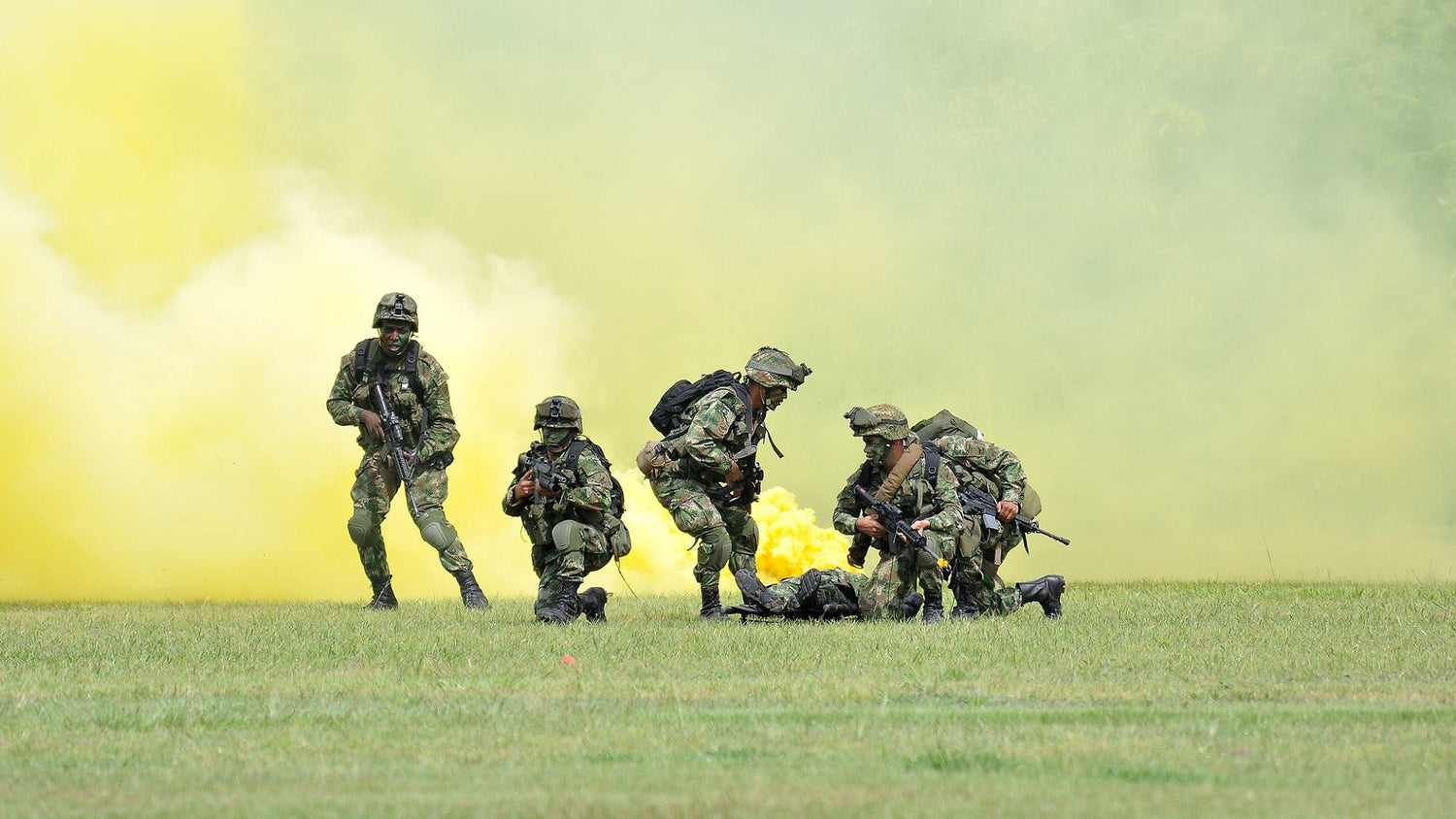Veteran to veteran, it’s time we had a minute of honesty and real talk. We are not special. At least not in the way society has been telling us we are since 9/11.
In order to serve, we made a decision and signed a fucking contract. No one put a gun to our head, no judge drawled “go to war or go to jail.” We put pen to paper and made a business decision and it’s about damn time we, collectively, took ownership of that.

Just like me, you woke up one day, walked into a recruiter’s office and said, “I want to enlist.” You went through duck walking in your underwear, a couple of asinine tests, and finally, you raised your right hand and swore an oath. We swore to put ourselves into harm’s way. We swore we’d lay down our lives to defend our nation against all enemies foreign and domestic.
That’s a big damn commitment that most people in the United States won’t or can’t make.
In exchange for our labor and service, we got some cash, money for college, or our student loans paid off, provided we served honorably. But we knew what we were doing, we knew what we’d signed up for.
So what then are we owed by the society with whom we did the deal?
Nothing.
Read that again. We are owed NOTHING.
The belief we are special for simply engaging in a business deal is patently false.
The bitter irony of what does make us so special and so unique is what happened after we signed the contract. The work YOU did, the buy-in you committed to your fellow soldiers, sailors, airmen or Marines. Our community is sitting on a goldmine, a priceless store of wealth and potential if we stop buying into a bullshit myth and get back to what made us so damn successful in the first place.
In becoming a member of the military, the ultimate team, veterans have a series of competitive advantages that are extremely rare and hard to replicate in the civilian workforce.
1: Veterans understand mission accomplishment and stopping when the job’s done, not when the clock strikes five.
If we as a collective community, did nothing but walk into any job situation in America, head down, focused and thinking nothing about mission accomplishment, we’d change the world in six months.
The single largest, competitive advantage, the thing that makes every honorably discharged Veteran special, is that you get the job done.
As we come from a culture that failure is simply not an option, getting the job done is like breathing for us. Even the (jokingly) oft-maligned water treatment specialist in the military knows that if they fail to do their job, the whole base gets sick. If the whole base is sick and the medical tents are overloaded with the ground pounders, then they aren’t on mission. If they aren’t on mission the whole base eats a steady diet of rockets and mortars until everyone gets better.
It’s no accident that the mantra of the most successful team in recent sports history - the New England Patriots - have a mantra inspired by the military.
“Do your job,” Coach Bill Belichick repeatedly tells his charges.
Belichick was inspired to and came up with that directive after having grown up around the Naval Academy’s football program, where his father was an assistant coach and scout.
In an article for Nantucket Magazine, Belichick is quoted as saying, “I just assumed that’s what football was. Guys were very disciplined. They worked very hard. They did extra things. They were always on time, alert, ready to go, team-oriented, unselfish. I thought that’s the way it all was. I wasn’t aware of it at the time, but I can see how that molded me.”
The ethos of the most successful football team in history is straight up ripped off from our history and our traditions.
It’s one of the reasons the “all veterans are heroes” narrative bothers me so much. By implying we are owed something, it encourages us to take our foot off the gas pedal in civilian life when we should be mashing that motherfucker down to the floor and redlining the RPMs. Just like no one can keep up with New England when Tom Brady and Belichick are running the no-huddle and everyone on that team is doing their job, the average civilian can’t keep up with you running and gunning out there in the world.
Ask yourself the following question: If I walked into my job tomorrow, and my only focus was mission accomplishment, if I treated it just like I was on mission back in the day, what would change?
My guess is a lot.
Furthermore, one of the largest skills that most civilians miss is something you already have in spades.
2: Veterans understand how to work in a team like your life depends on it because it literally has.
Teamwork is one of the biggest buzzwords in the business world. If you cannot work well with others, or contribute meaningfully to a group, you are at a massive disadvantage in the modern workforce.
But for us, we’ve had battle buddies since the day we arrived at reception, we were team members from the jump.
Within the first couple of months of being a member of 2nd Ranger Battalion, my Ranger buddy who got to my squad the same day that I did, lied to me so he could steal my car for the weekend and take it to a party three hours away in Portland, Oregon. I was raging when he finally got back, fuming and seeing red.
“Enjoy jail, asshole,” I yelled at him as we walked through the door of our barracks room, licking my chops at the thought of the MPs carting him off in short order.
“Start pushing, Amenta,” my squad leader immediately fired back at me. I stared, dumbfounded.
“You heard him, get the fuck down,” my team leader screamed out. Then my squad leader dropped my Ranger buddy and for the next two hours, lit us up like the Fourth of July. They were thrashing my buddy for being a selfish ass and causing all of this, thrashing me for not only thinking it was a good idea to take the problems outside of the unit but for not setting crystal clear expectations of my teammate.
We were in the same squad for another year and a half, roommates too. Day in and day out, do you think I ever forgot what he did? Of course not. Do you think the collective performance suffered because of it? Hell no. We all knew what it meant to let overly personal feelings get in the way of group accomplishments.
Your personal experiences may not be as extreme, but I have yet to meet a veteran that does not have a story along similar lines. We know how to be a member of a team under the toughest circumstances. In the most austere and hostile environments, and yes, even when we severely dislike the members of our team, we know how to perform and excel under that stress.
So why are our social media feeds awash with all the “these idiots at my civilian job just don’t get me!” or “It’s impossible to work with these assholes!” sentiments?
It’s a choice.
A choice to work towards the collective good or a choice to look at the individual and see an idiot. I certainly could have seen a theft in my former Ranger buddy, and I even could have gone outside the family, called the MPs and reported what he did. But that’s not how we, as a collective military family, have ever handled our business.

3: Veterans are not only extremely creative, but are extremely adaptable problem solvers.
I know that the average civilian has watched Full Metal Jacket one too many times and think that all we ever learned in basic training is “Yes, Drill Sgt,” and “No, Drill Sgt,” and “whatever you say, Drill Sgt,” but we know better.
We all know how to make our beds tightly and sleep over the covers using our poncho liner so we don’t have to always remake the bed, how to have our display items and keep our day-to-day wear items on one shelf that can easily be transferred to our laundry bags during inspections, how to warn everyone when the inspection is coming, which chow hall employee is sympathetic and will let you eat extra on KP and which ones to avoid. That’s just basic training.
I have yet to meet a veteran who has been deployed in the past 17 years that doesn’t have a system for trading for what they want in an MRE or knew the supply schedule for exactly when the licky and chewies were going to hit supply overseas. Nor have I ever met a veteran who, while in uniform ever stole a thing.
“I have only ever re-appropriated governmental resources for the betterment of Task Force/Unit/Platoon,” the old saying goes.
Some of you are laughing right now, but think about the creativity, the adaptability and the hundreds of soft skills needed to make some of those missions and trades happen. In the modern day of extreme helicopter parents, participation trophies and severe risk aversion in the average civilian, such creativity makes your mind and your ability to plan, execute and adapt the plan as things progress so valuable.
The skills that allowed you to convince your buddy they really didn’t want their cheese spread and really did want your PB are the same skills often desperately desired in the civilian workforce.
4: Veterans, stacked up against any other group of people in the world, understand and value hard work.
With 4.59% of applicants accepted, Harvard is the hardest institute of higher learning in which to get in. Except .4% of 18-49-year-old American males have served in the military.
So, technically speaking, you are part of a far more elite, difficult to get in to organization than some Ivy Leaguer.
“But Tom”, I can already hear you saying, “so many people that could get into the military don’t apply.”
Do you don’t think that fear, self-doubt, concerns about personal mettle or academics don’t prevent people from applying to that school?
Fuck yeah, they do.
Just like all your friends who “were” going to join the military like you did but, you know (insert garbage excuse here), got in the way. In an increasingly insular society, veterans are special. But we lose that competitive advantage and what makes us unique the minute we stop working hard and start expecting people to do things for us. If as a collective we feel owed, we feel entitled to more than what we signed on the dotted line for, we start falling behind.
There are so many comparisons made to our generation and “the greatest generation” of WWII veterans, and despite best intentions, it’s also killing our perception of what we are owed in society.
Depending on how you look at the statistics, up to 55% of the 18-49-year-old men served during the war. Roughly fifteen and a half million. Compare that to .05% of the eligible 18-49 men of our generation, or 3,500,000.
The post-9/11 military has been part of the longest running active armed conflict in American history, with wars fought by the smallest percentage of the eligible population in US history.
When our grandfathers came back from WWII and again from Korea, they came back to a nation that needed leadership, just like we desperately do now. They got the GI Bill and VA home loans, programs that have been upgraded for us, post-9/11.
There are just fewer Veterans than at any other time in US history.
I get it, that’s fucked. It has driven me to the absolute precipitous in college. I’m not proud of it, but I almost became one of the twenty-two a day.
And having to admit that sucks.
But coming out of the other side of that, of having made it to the other side, I really believe to my absolute core, that this nation’s best chance at continuing to be the greatest nation on Earth may be through us.
But we need to start embracing the things that really make us unique, the things that really allow us to thrive and shine through. We need to stop buying into this myth of our inherent specialness.
You can, in fact, take over the world if you want to. You just need to believe your work ethic is what makes you special, not that you signed a contract.
Tom Amenta is a former Army Ranger who now fritters his days away as a bourbon swilling professional raconteur.
[apparel-ad]





Leave a comment
This site is protected by hCaptcha and the hCaptcha Privacy Policy and Terms of Service apply.